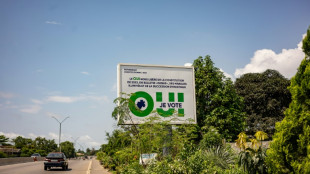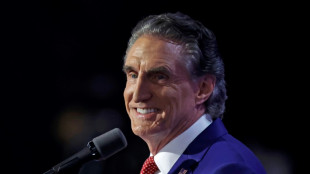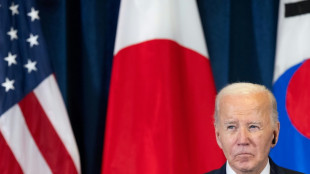

Fuel price hikes, scarce rice add to hardship in Myanmar
Dozens of people queue under monsoon drizzle for subsidised cooking oil in Myanmar's commercial hub Yangon, waiting for one of the many commodities that have become scarce as economic misery strikes the city.
The country's economy tanked following a military coup last year and has been further rattled by the junta's attempts to seize foreign exchange as well as erratic rules governing businesses and imports.
Living standards are being hammered by global commodity price spikes sparked by Russia's invasion of Ukraine, leaving many struggling to get by and relying on subsidies or charity to put food on the table.
"People can't spend much of their income on food because of higher commodity prices," said 55-year-old housewife Khin Khin Than as she waited to fill her plastic bottle with oil sold by a local association.
The market price for roughly 1.6 kilograms of oil has rocketed to 9,000 kyat ($4.25) from 5,000 kyat, she said.
"If only one person is working, a family won't have much money left for food."
In July the World Bank said about 40 percent of the population were living under the national poverty line.
Consumer Price Index inflation hit 17.3 percent year-on-year in March, it added.
The price of rice has also shot up thanks to increased transport costs and as the military and anti-junta fighters turn swathes of the country into battlegrounds.
Even the state-backed Global New Light of Myanmar newspaper carries almost daily reports on the rising cost of rice, eggs, vegetables, bus travel and rent.
Last week the price of a litre of diesel jumped by around six US cents overnight, state media reported, to a high of 2,440 kyat ($1.15) per litre.
On the day before last year's coup, customers in Yangon were paying 695 kyat at the pump in Yangon according to industry figures.
This week the junta announced it had formed a steering committee to purchase fuel from ally Russia, but gave no details on when or how this would begin.
Many people are relying on charity to make ends meet.
"If we cook at home, there is no electricity, rice is expensive to buy," said Lay Lay, 68, one of hundreds queuing at a monastery for a free meal of curry and rice.
"Cooking costs are too high for someone who is retired."
Ashin Ottamasiri, who supervises the distribution, said his monastery is giving out coupons to 500 people every day for food the monks cook using ingredients donated to them.
"But some days there are more than 600 people," he said. "If we run out of rice and curry, we give cakes, snacks and fruits."
"I can't give shelter for many people but I can share food so people will have meals like I do."
T.Gruber--MP




